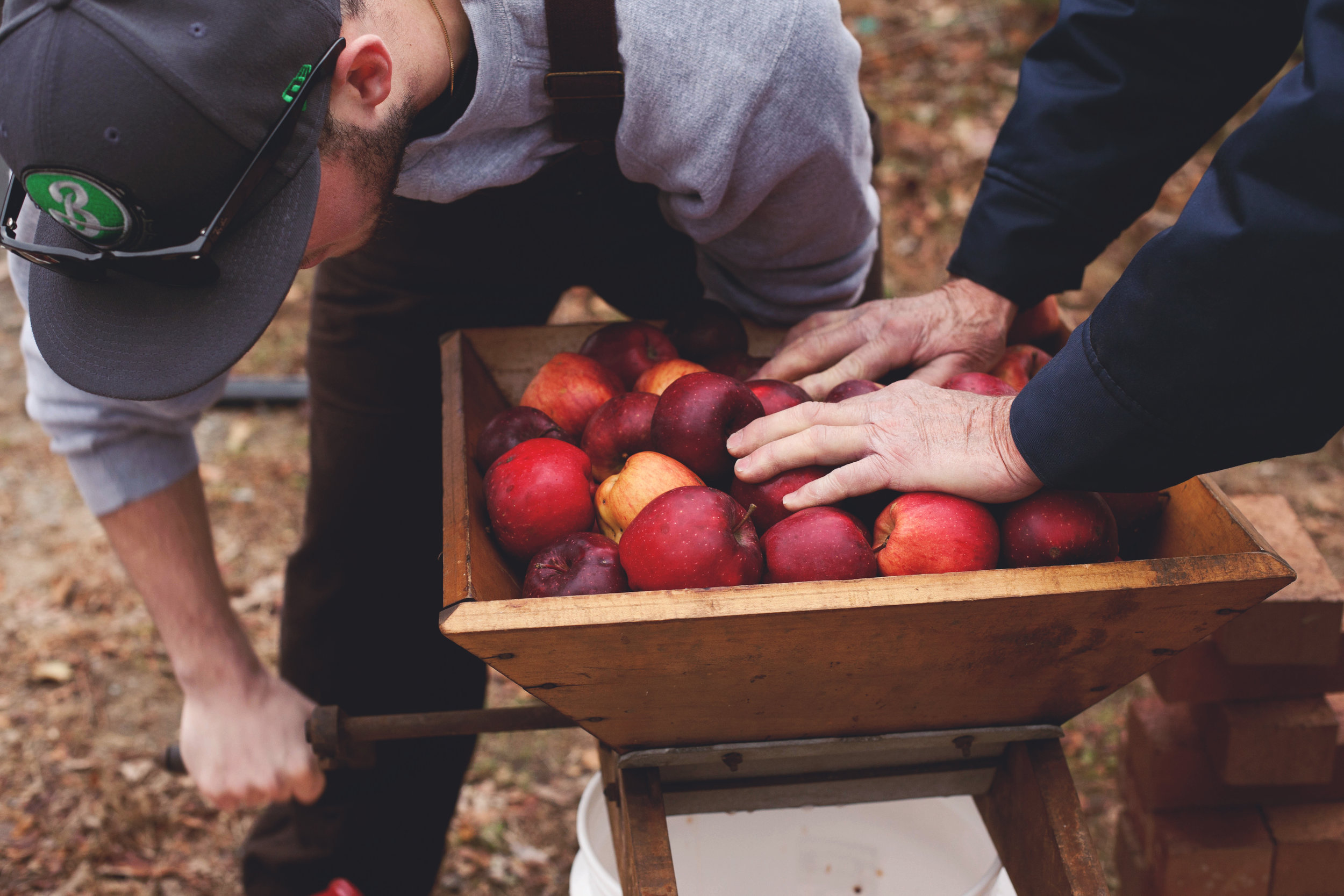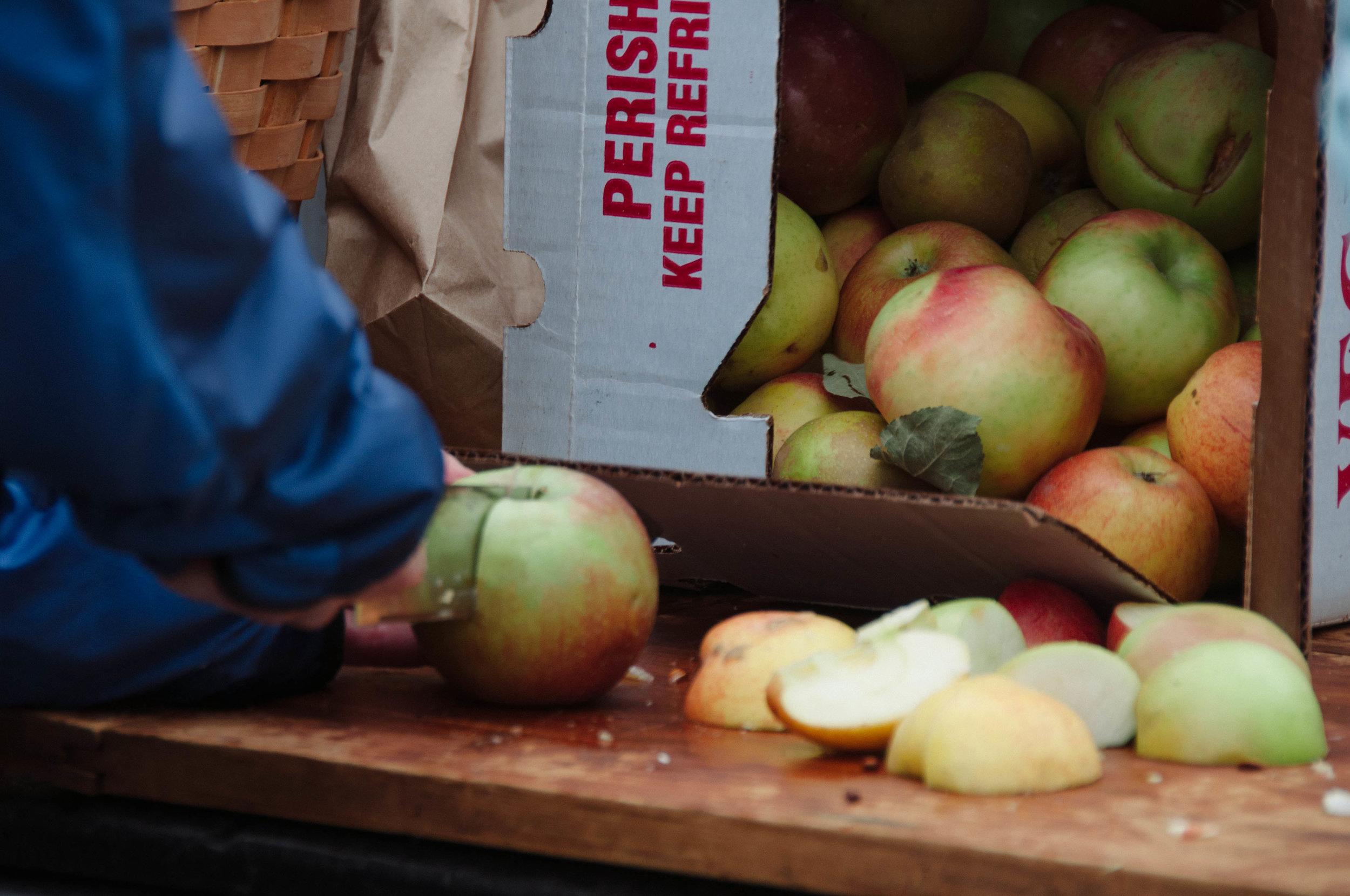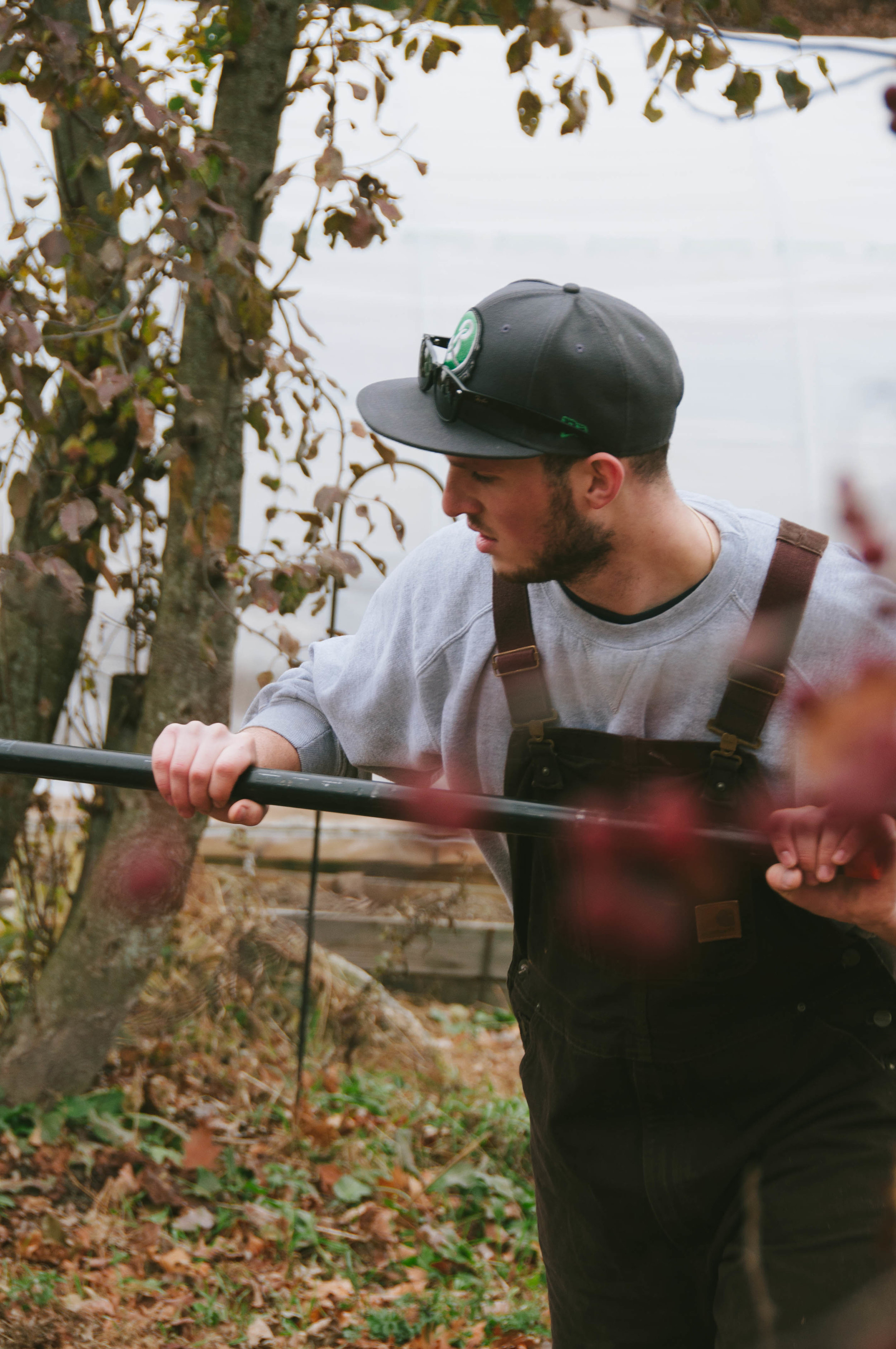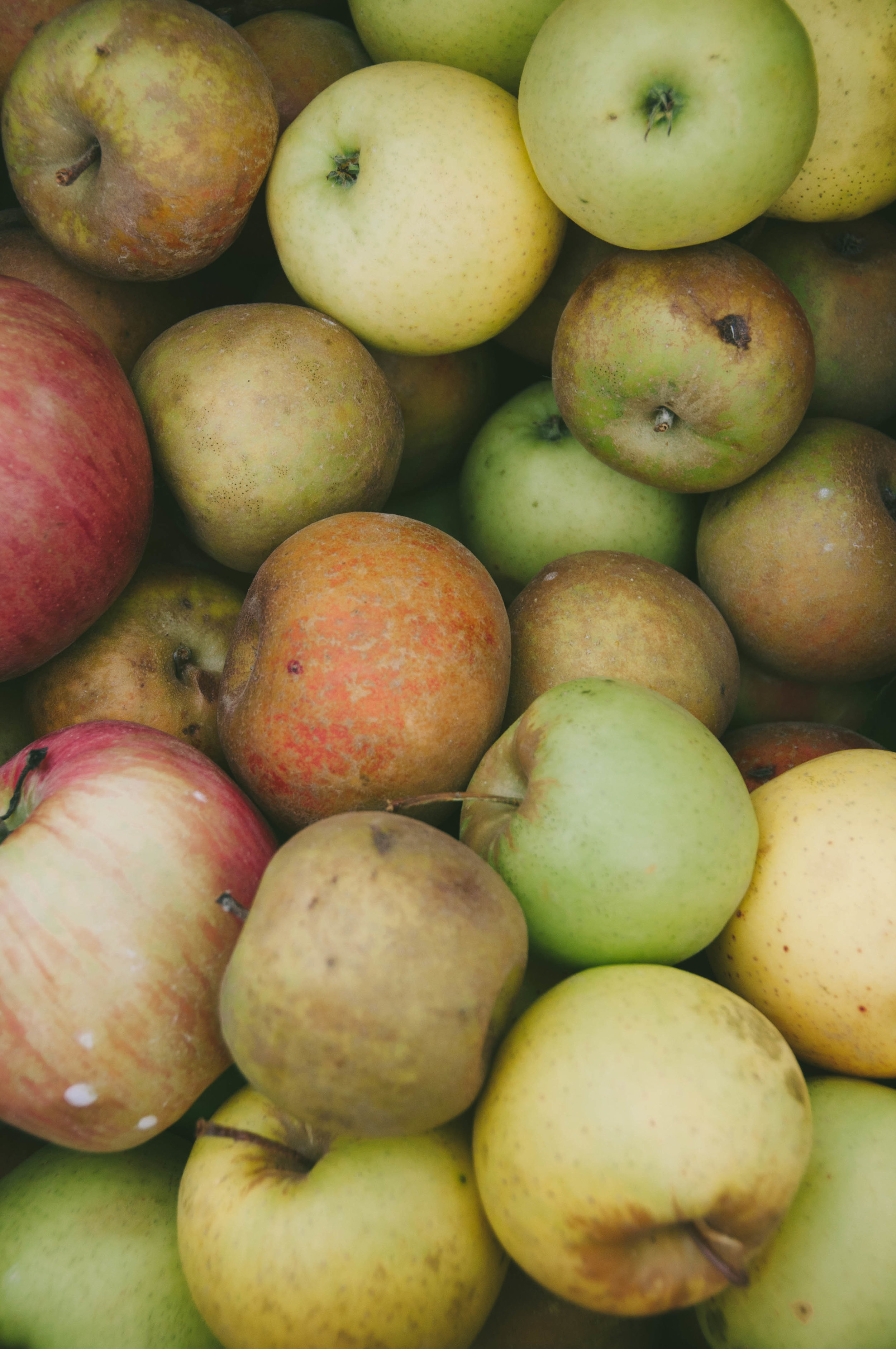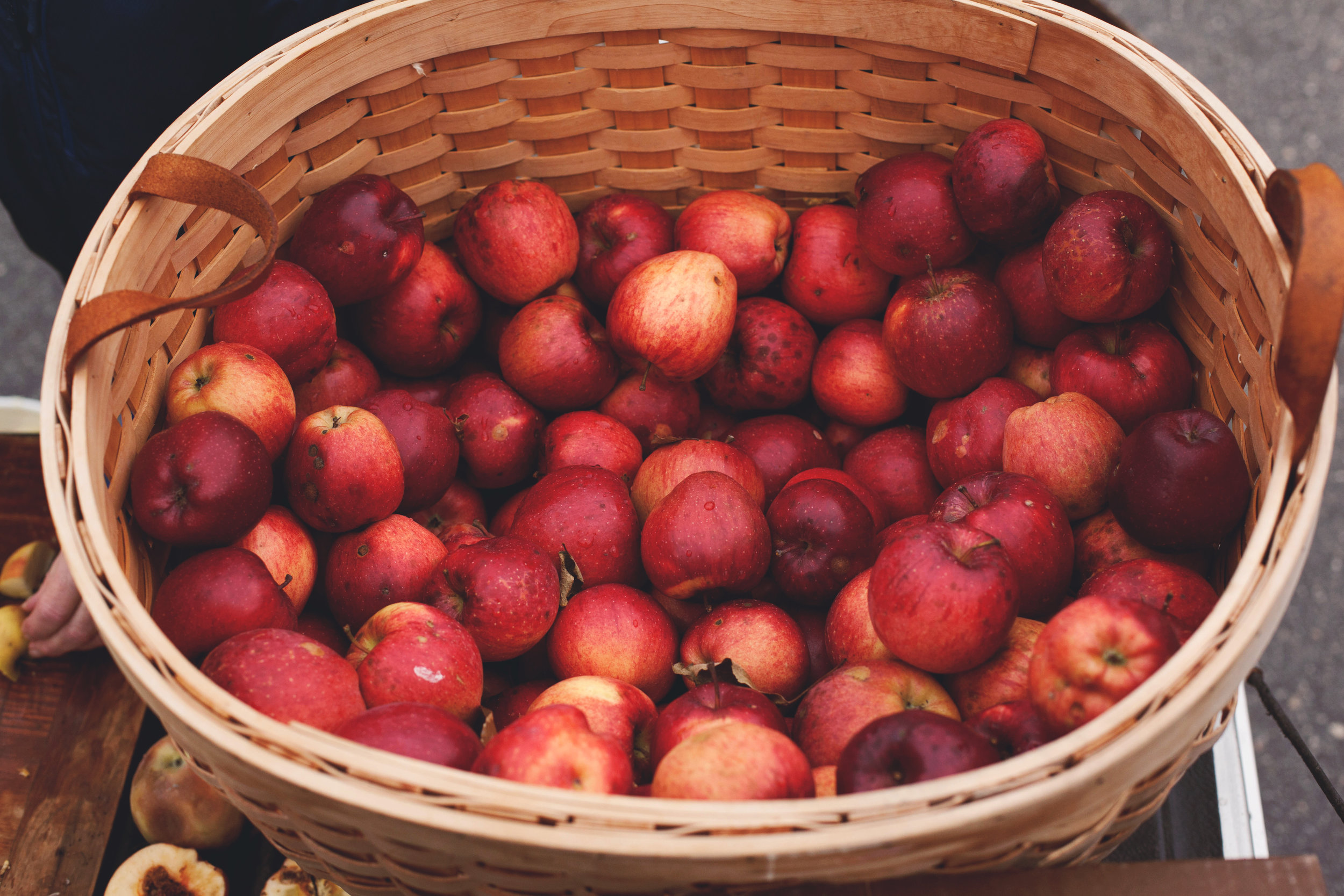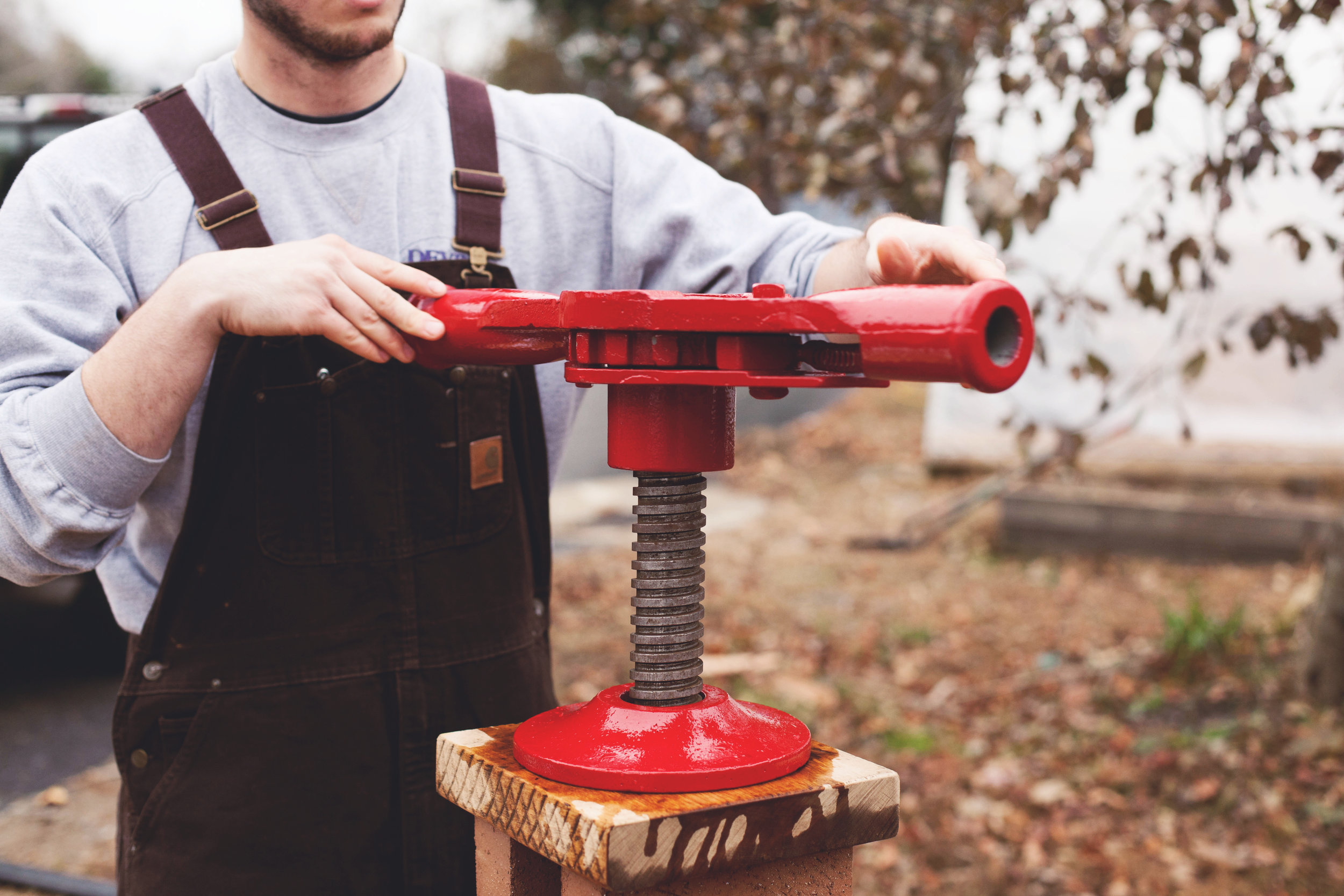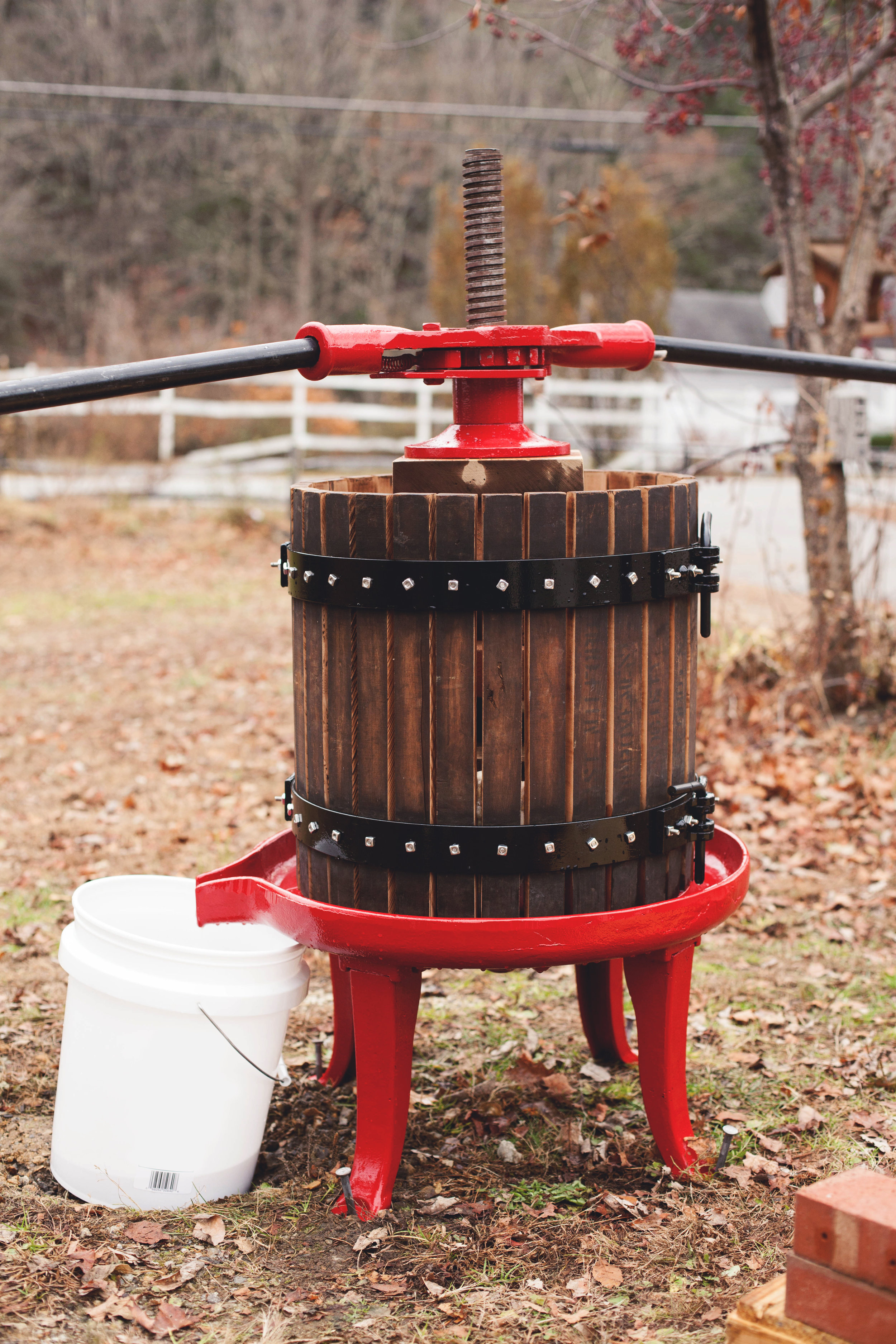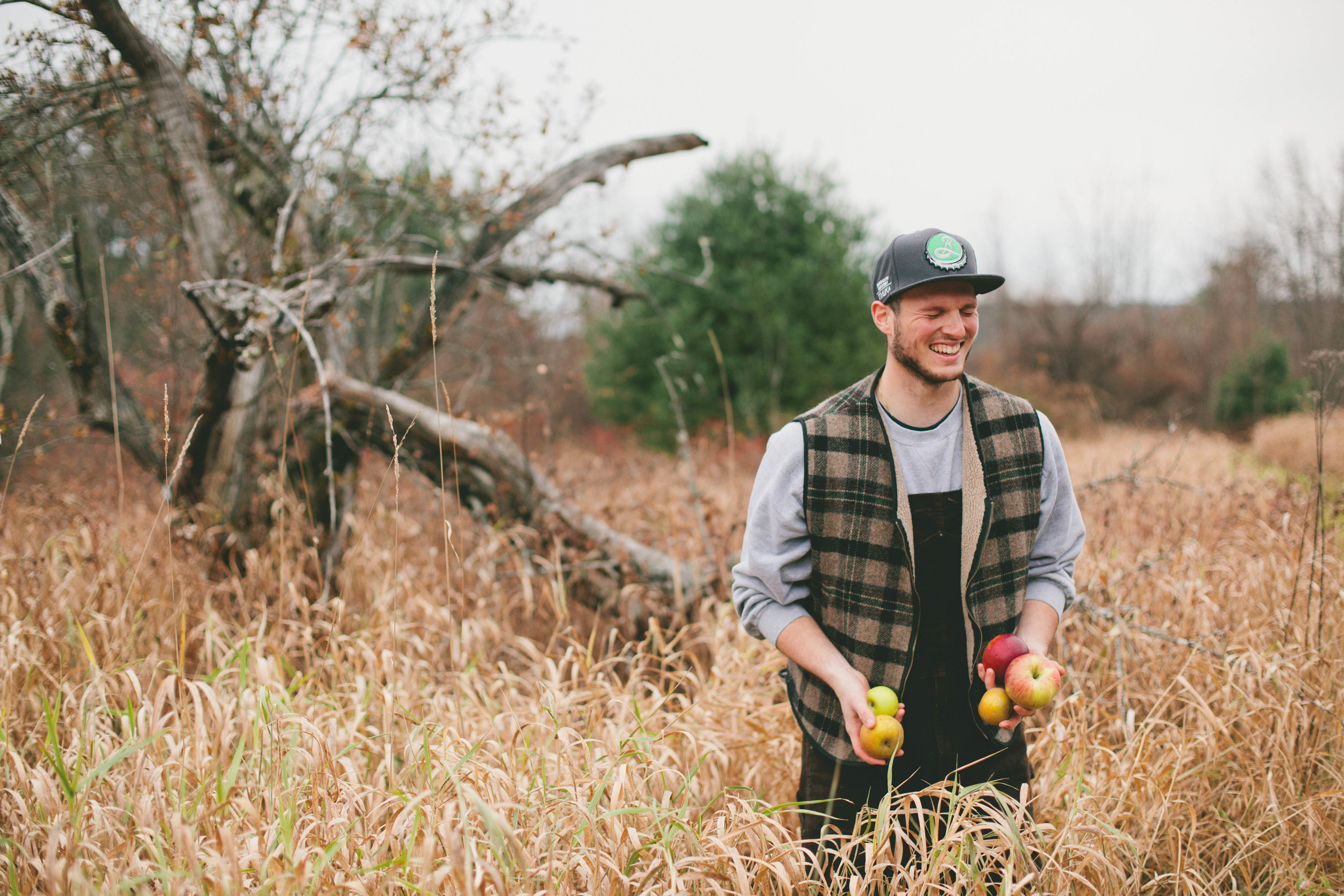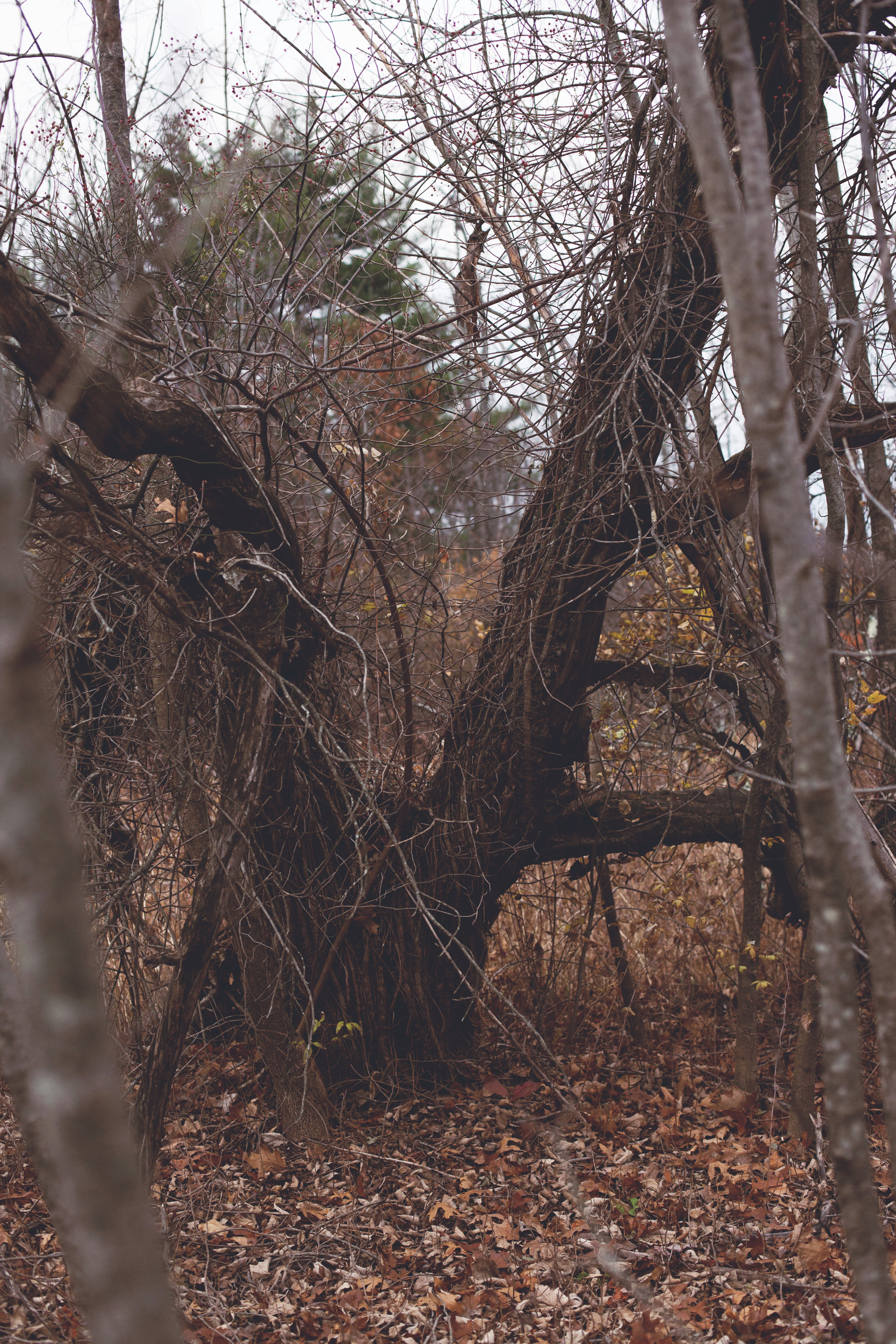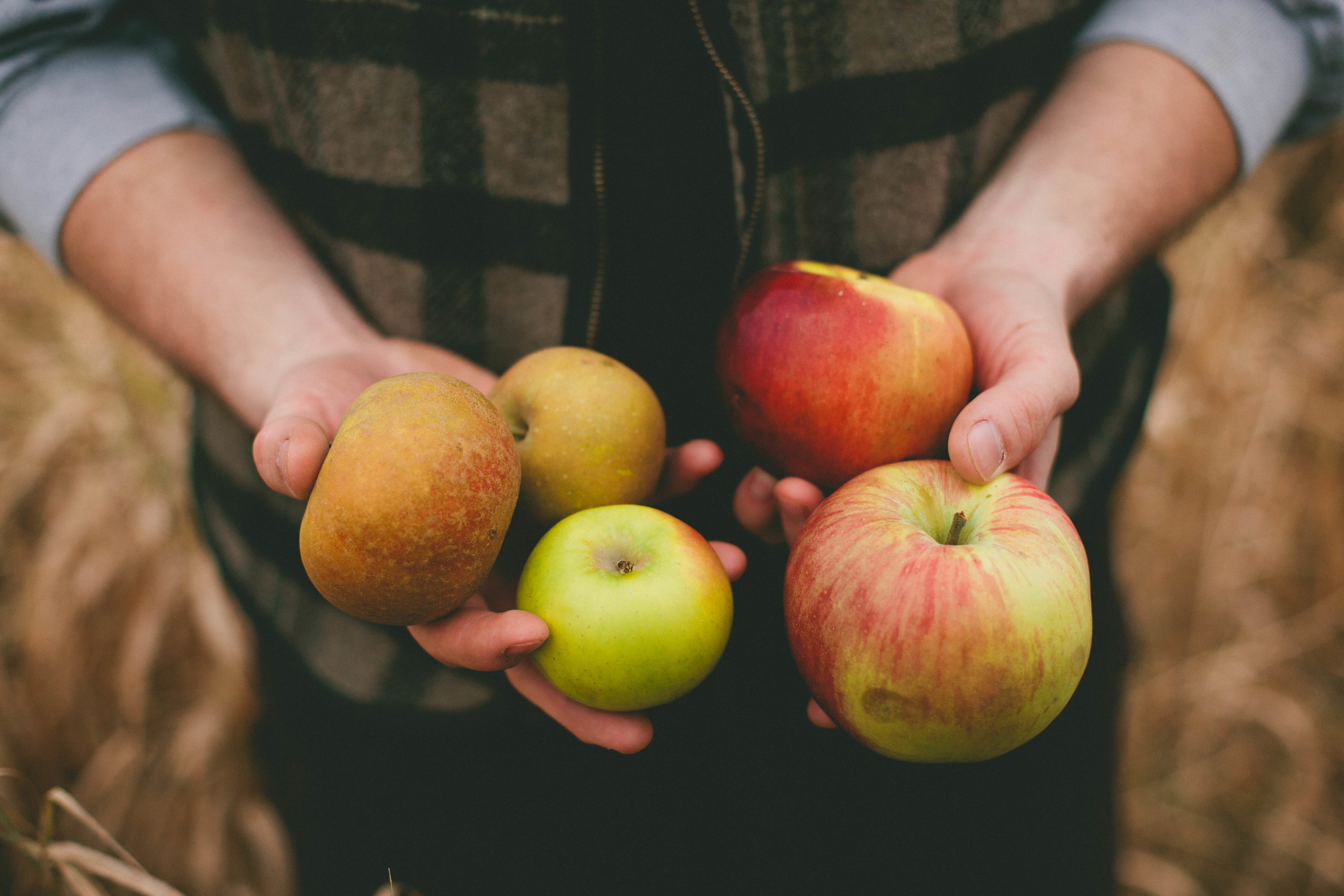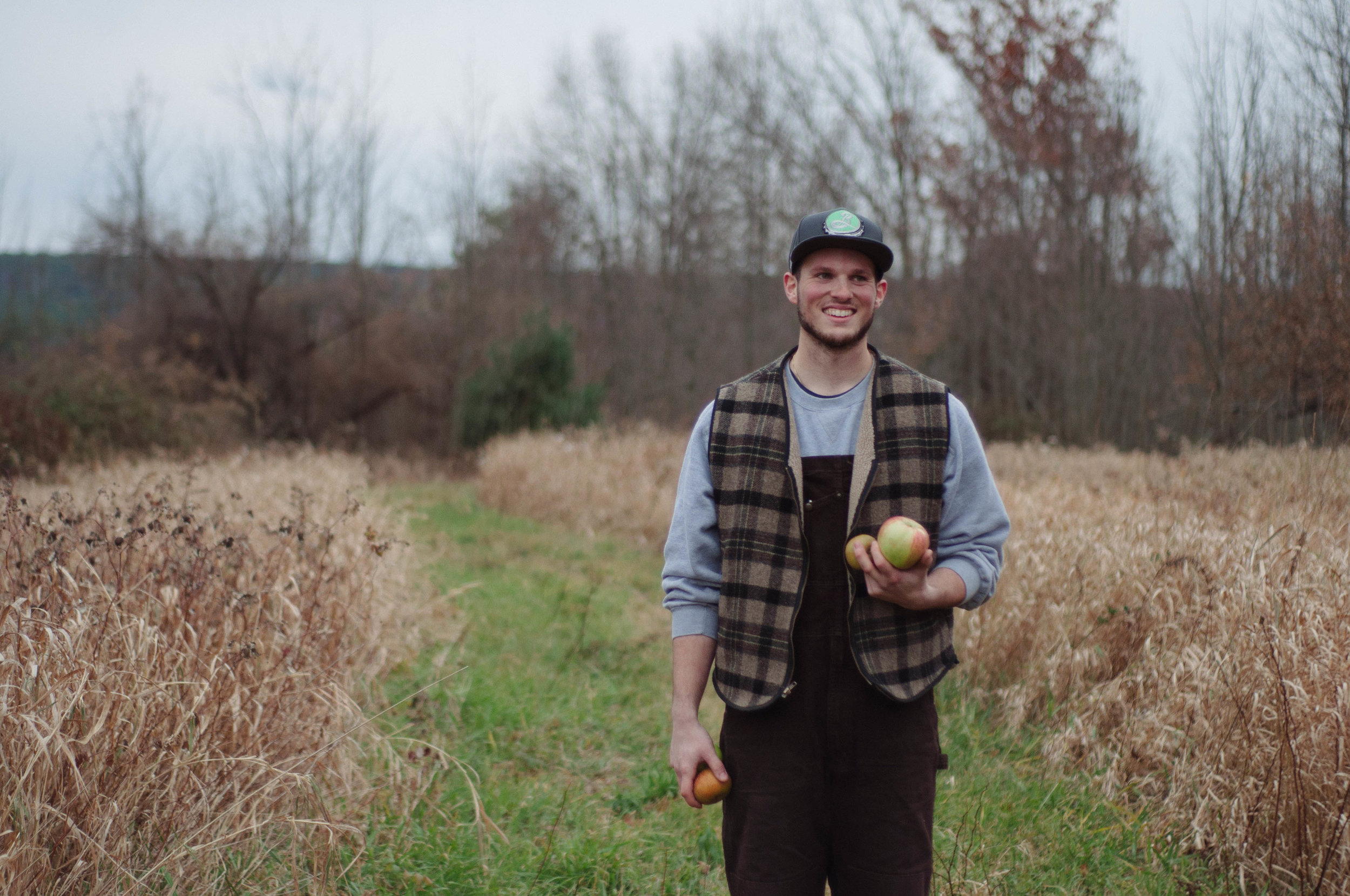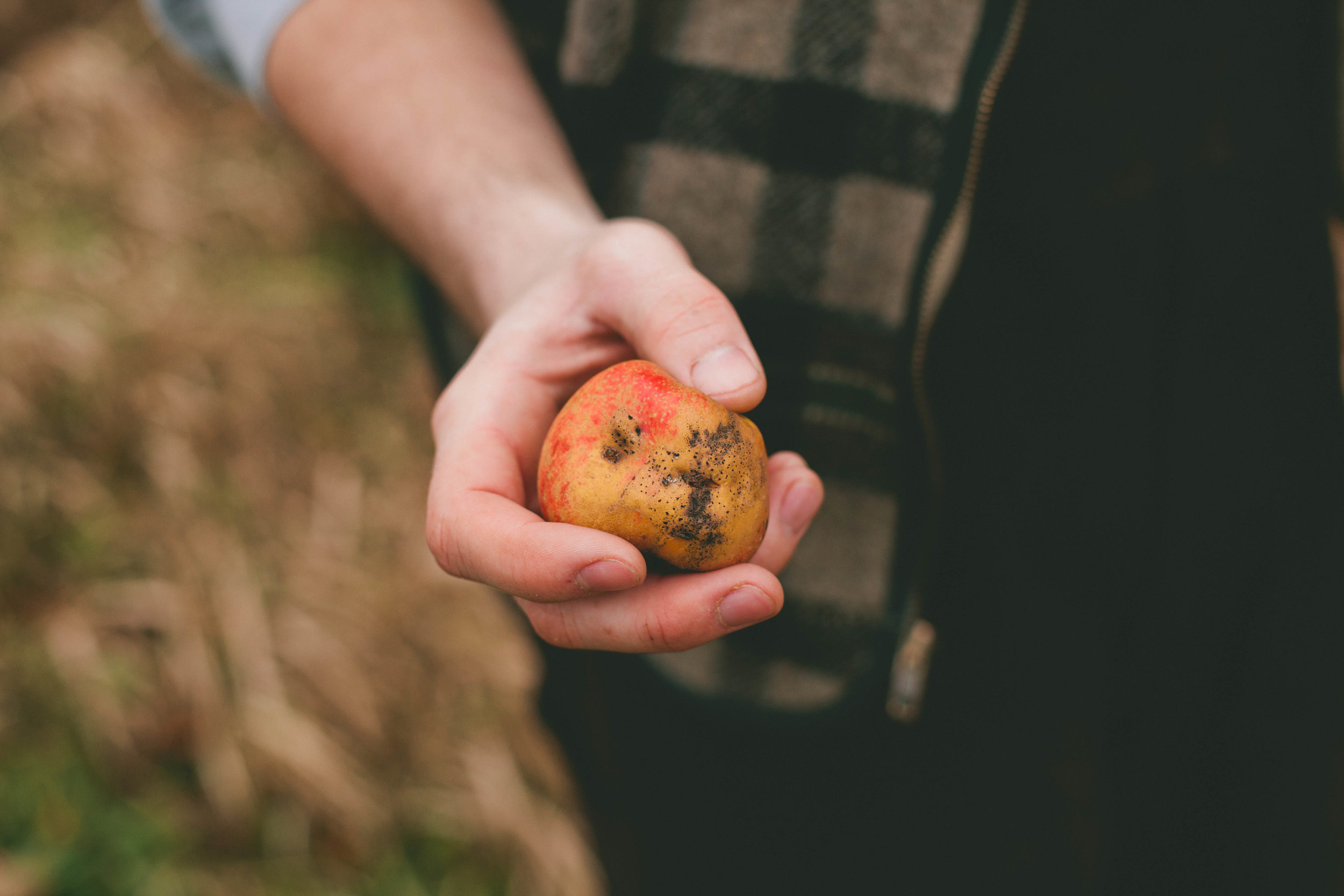The Apple Connoisseur
The Apple Connoisseur
A Q&A with Nick Devine, cider maker
Photos by Jenn Bakos & Ashley Herrin
In October, t.e.l.l. met with Nick Devine, a local cider maker and apple connoisseur to discuss his trade and the ins-and-outs of cider making. Nick’s love and passion for apples is unmatched...he even has the tattoo to prove it! Nick was kind enough to give us an in-depth tour of the process and the neighboring wild orchards to discuss what it’s like to make cider in New England.
---
You are incredibly passionate about apples, and you’re wealth of knowledge on the topic is amazing. When did you become so passionate about them? What provoked your interest in the topic?
My passion really began when I started working on a farm four years ago. The farm was primarily an apple and peach orchard that grew over 50 different varieties of apples. My first fall working on the farm I needed to know the different varieties by look and taste in order to help people at the farmer’s market find the perfect apple. Being an artist I started obsessing over the color and textures of the different apples. The small- est differences between each variety consumed my thoughts. I wanted to learn more. I asked the farm owner questions about apples almost every day. I started learning more about the act of growing apple trees and how to care for them. I was blown away by how tough apple trees are. I then started to buy books and do random internet searches about apples and the history behind the magical fruit. As soon as I dove into the history of apples and apples trees, I was hooked. They helped form the colonies and kept the founding fathers going. That’s when I found out about hard cider. I decided to do my senior thesis in art school on hard cider and really try to wrap my head around the topic in an artistic and intellectual way. And the rest was history.
When did you start making hard cider? Did you begin with traditional apple cider and it just evolved from there, or did you just jump right in?
I made my first batch of hard cider in 2010, so I’m technically still a “green- horn” in the subject. I do pride myself in my traditional method of brewing and keeping my cider as close as it can be to what the founding fathers would have drank back in the day. I’ve done countless hours of research and have an entire bookshelf dedicated to apple related reading material. I never was really interested in making regular cider due to the fact that it didn’t really exist before prohibition. Before prohibition, if you heard someone say “cider,” they were referring to the hard stuff. I still have a bottle of the first cider I ever made and I keep a bottle from every batch for my own collection. That batch I really just decided to “wing it.” I took some cider, maple syrup, a cinnamon stick or two, and some brown sugar, and threw them all into a bucket and crossed my fingers. It came out surprisingly great! Making hard cider is pretty straight forward and probably one of the reasons I became so hooked.
What are the best varieties to use when making hard and traditional cider?
Nick I know a few old bucks that swear a Macintosh and Red Delicious mix will produce the best cider (non alcoholic). I make my hard cider with as many different varieties as I can. I feel as though the range of flavor you can get from it is unmatchable. It is also the more ‘traditional’ way of making cider when you think about it. When Johnny Appleseed ran around planting his trees, each was a different variety. When the colonists made cider, they grabbed whatever apples they could find and threw them all into the press.
t.e.l.l. Do you like to experiment with your cider flavors beyond apple?
Nick For these first few years, my hard cider has been strictly apples. However, I am getting more knowledgeable of the subject so I’m starting to get a little crazy with my flavors. I try to stick to what the colonists would have had access to, and to what grows locally in New England. I have made Honey Cider, Peach, Rhubarb, Blueberry, Strawberry, Raspberry and Blackberry, and Squash ciders.
It seems that patience is a virtue when it comes to making hard cider. After bottling, how long does the cider need to age?
The older the cider the better the taste. It’s like a fine wine; the flavors will co-mingle and become more sophisticated with age. I let my cider sit in the fermentation carboys for at least three months prior to bottling. Once bottled, I will let them age an additional 2 weeks to 6 months — depending on the type. As I said earlier, I have a bottle from every batch I have made — saving each one for a special day. Those days? I don’t know. But I feel like I will know when the time is right.
Devine Farms is the brand you’re currently building. In ten years, where do you see Devine Farms?
In 10 years I see my family farm producing Heirloom apples and wild apple varieties for cider production. I would love to have a farm stand to sell my apples and other produce to local families. I would like to have my own apple nursery where I can grow old varieties of apples to keep the history and heritage of them alive. I want to be making hard cider for my family and friends. Who knows if I will ever get to the point of making cider for the general populous.
What is your favorite aspect of making hard cider?
My favorite aspect of making hard cider is how I am keeping a tradition that has been around for generations alive. I love how I drink my cider. I close my eyes and I can instantly be transported to a different time for just that moment. I am history when I sip on some cider. It could be the worst tasting cider I have ever made and I would still be enjoying myself because I know the founding fathers didn’t make it right the first time, but they also didn’t let it go to waist.
What is your favorite apple variety?
My favorite apple of all time...nothing is better than a Northern Spy right off the tree. But the flavor changes in storage, so I would have to go with the Esopus Spitzenburg as my all-time favorite.
